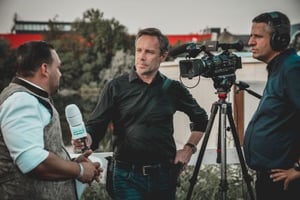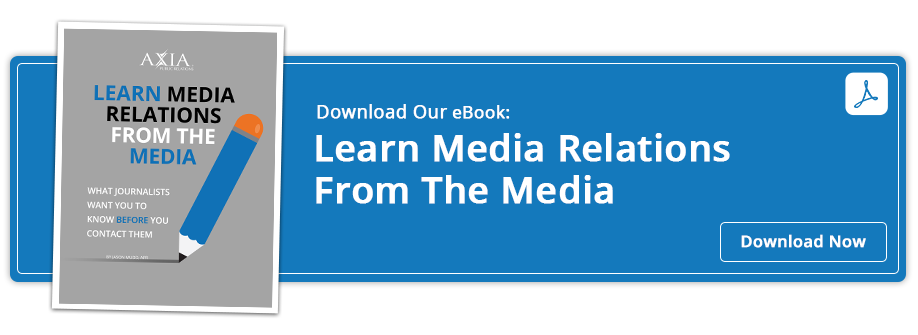If a TV interview doesn’t air, it doesn’t mean you’ve failed as a PR professional
 TV reporters regularly contact public relations professionals to score an interview with an expert. After the back and forth, prepping, and recording the interview, both parties expect the interview to air, especially if the reporter gives you a specific date.
TV reporters regularly contact public relations professionals to score an interview with an expert. After the back and forth, prepping, and recording the interview, both parties expect the interview to air, especially if the reporter gives you a specific date.
What if it doesn’t air? As PR pros, we can’t help feeling lost if we experience this.
This post discusses why a TV interview might not air, what it says about your skills, and how to avoid or mitigate the impact of such a disappointing outcome.
Audio: Listen to this article.
Why a TV interview might not air
There are many reasons why your TV interview might not make it on screen at the end of the day. Some reasons include:
- Breaking news, events, and sweeps
- A change in the news lineup
- Sponsored content might cause the interview to get bumped
- During the interview, your client may have repeated what someone else said, failed to speak well, or not said anything newsworthy.
Simply put, a lot goes on in the newsroom, and there’s very little you can do. Even popular people are not immune to their content getting bumped. Producers want to make sure viewers get the freshest and hottest news. If that means not airing your client’s interview, then that just might be the case.
What does it say about your PR skills?
If the TV interview didn’t air, it doesn’t mean you don’t know your stuff as a PR professional. It doesn’t mean you’ve failed in any way.
While rare, interviews getting bumped is an unfortunate phenomenon in the busy and competitive news cycle; you can’t be certain what will make the cut. Neither can the reporter, producer, and news show. So, as disappointing as the outcome would be, it says nothing about your PR skills.
You did nothing wrong.
If anything, the fact you landed a TV interview for your employer or client in the first place is a strong indicator you’re worth your salt.
What to do?
It can be discouraging to know the TV interview you landed for your client wasn’t aired, so let’s discuss some pointers on how to avoid or reduce the impact of such disheartening results.
- Set client expectations. Before and after the interview, let the client know the interview might not air. Make no promises.
- Before granting an interview, qualify the station, show, and the reporter to know if they deliver quality, balanced reports.
- If the same station repeatedly fails to air your clients’ interviews, decline to grant them further interviews or discuss your experience with them.
- Media training and regular practice will help your client master TV interviews if it’s new to them.
- Even if your client or their spokesperson isn’t new to TV, you might need to assess their interview style and provide additional training, particularly if their interview has been dropped more than once.
Additionally, to boost the chances of the interview making it to the big screen, make sure to show why it’s important to the audience. Your spokesperson will stand out when their content is provocative, contrarian, and has a unique point of view from what everyone else is saying.
They should also be factual, neutral, and objective, and never self-serving or selling to the audience. Integrate compelling visual elements to keep the audience engaged.
If your spokesperson doesn’t give insightful content or is condescending to the reporter or the questions, the TV producers won’t hesitate to cut the story or use another source instead. This highlights the importance of media and spokesperson training.
Finally, whatever the case is, don’t make the mistake of shying away from news interviews just because you’re unsure they’ll get the desired media placement. Read our post to find out why media interviews are essential.
Photo by Redrecords ©️ from Pexels
Topics: media relations, earned media, news media



Comment on This Article